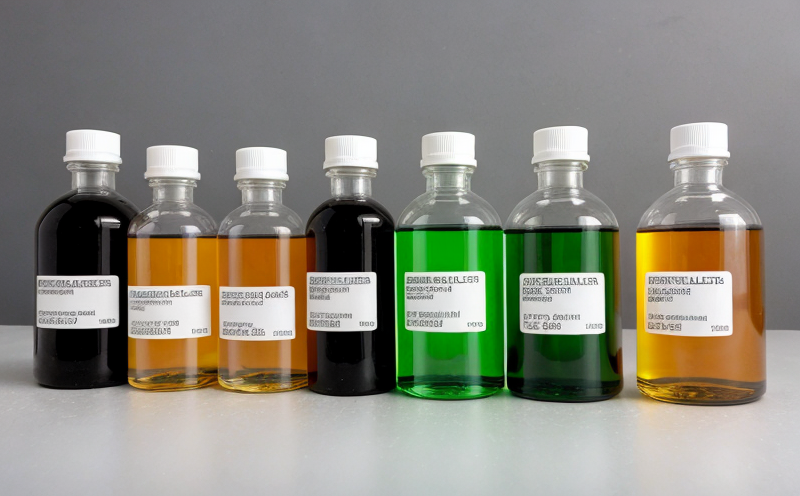GPC Molecular Weight Distribution of Extracted Polymers
The analysis of molecular weight distribution (MWD) of polymers extracted from medical devices is a critical step in ensuring the safety and efficacy of these products. This service uses gel permeation chromatography (GPC), also known as size exclusion chromatography, to separate and quantify different polymer fractions based on their sizes.
Medical devices often incorporate various types of polymers for structural integrity or functional purposes such as lubricity, biocompatibility, and durability. These polymers can interact with the environment during storage or use, leading to potential leachables that could affect patient safety. By performing GPC analysis on extracted polymers, laboratories can provide comprehensive data regarding the molecular weight distribution of these materials.
The process begins with thorough sample preparation where extracts are obtained from the medical device using appropriate solvents and techniques. The extract is then filtered to remove particulates before injection into the GPC system for separation based on size. Once separated, the fractions can be quantified using UV detection or other suitable methods.
Understanding the MWD of extracted polymers allows manufacturers to assess whether there are any unusual deviations from expected distributions which might indicate issues with manufacturing processes or material quality. This information is crucial for compliance with international standards such as ISO 10993-12, which requires thorough evaluation of potential leachables and extractables.
For certain polymers like polyethylene (PE), polystyrene (PS), or more complex copolymers used in medical devices, the MWD can significantly influence how they perform under various conditions. For instance, PE with a narrow MWD tends to have better mechanical properties compared to wider distributions but may be less resistant to chemical degradation.
- The environmental impact of polymers extracted from medical devices is becoming increasingly important as society demands more sustainable practices. By providing detailed information about the molecular weight distribution, our service helps manufacturers make informed decisions regarding material selection and processing methods that minimize adverse effects on the environment.
- Understanding MWD also aids in predicting long-term stability of polymers within a medical device, ensuring consistent performance over time which is essential for patient safety.
- Data from GPC analyses can support regulatory submissions by providing robust evidence supporting claims regarding biocompatibility and compatibility with other materials used in conjunction with the device.
Why It Matters
The importance of analyzing molecular weight distribution cannot be overstated, especially when dealing with medical devices that contain polymers. The integrity and safety of these products depend heavily on the quality of their constituent materials.
A narrow MWD typically indicates better control over the manufacturing process, resulting in more consistent product performance. Conversely, a broad MWD might suggest variability or defects during production which could lead to unpredictable behavior once inside a patient’s body. In some cases, this variability can result in higher rates of failure or adverse reactions.
Furthermore, understanding the MWD helps manufacturers stay compliant with stringent regulations aimed at protecting public health and ensuring product quality. Regulatory bodies like the FDA (US Food and Drug Administration) mandate rigorous testing procedures to identify any potential risks associated with medical devices. Our GPC service plays a vital role in meeting these requirements by offering precise data on polymer characteristics.
In addition, insights gained from this analysis can inform design iterations aimed at improving device performance without compromising safety or introducing new hazards. For instance, if certain fractions of extracted polymers exhibit undesirable properties, adjustments can be made to the formulation or manufacturing process to eliminate them altogether.
Benefits
The benefits of our GPC molecular weight distribution analysis extend beyond mere compliance; they encompass enhanced product quality, improved reliability, and reduced risk. Here are some key advantages:
- Enhanced Compliance: Ensures adherence to international standards such as ISO 10993-12, thereby facilitating smoother regulatory processes.
- Better Product Quality: Identifies and addresses issues early in the development stage, leading to higher quality products.
- Increased Reliability: Provides detailed information about polymer behavior under various conditions, enhancing trustworthiness of the final product.
- Risk Reduction: Early detection of potential problems minimizes the risk of recalls or lawsuits due to defects in medical devices.
- Sustainable Manufacturing Practices: Insights into MWD contribute towards more sustainable manufacturing processes by promoting the use of environmentally friendly materials and practices.





